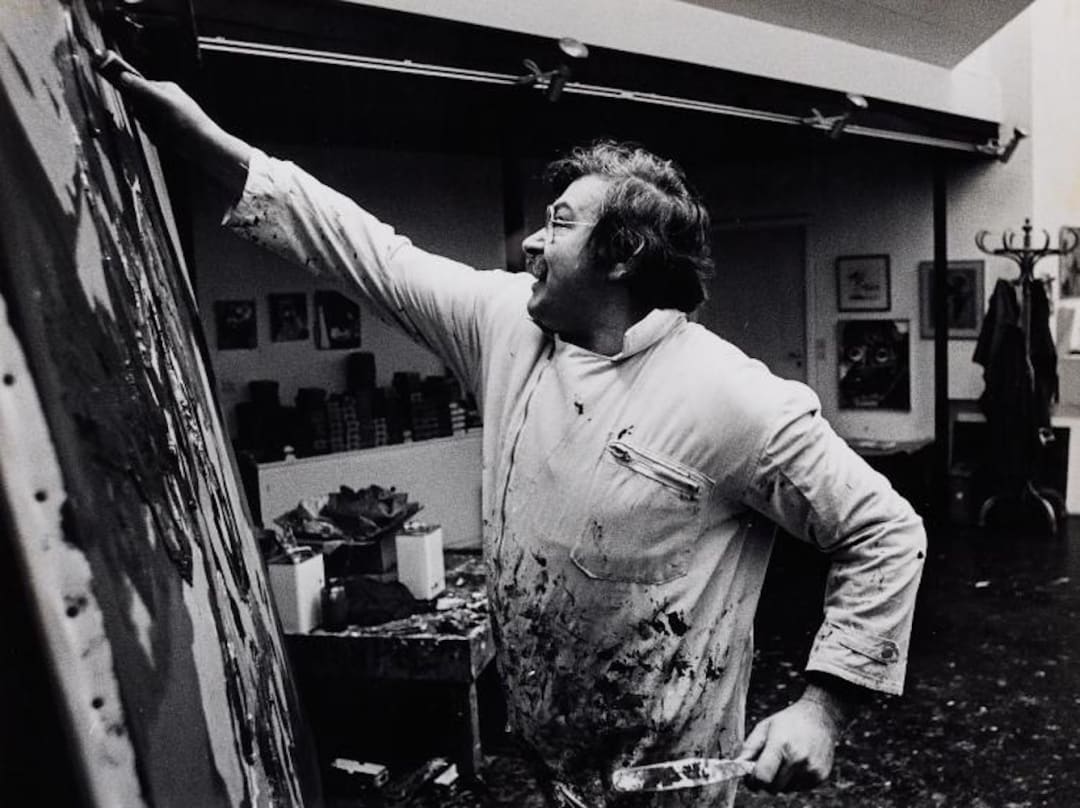Karel Appel (1921–2006) was a Dutch painter, sculptor, and poet, best known as a founding member of the CoBrA movement, an avant-garde group of European artists who sought to break away from traditional artistic conventions. Born in Amsterdam, Appel studied at the Rijksakademie van Beeldende Kunsten but quickly rebelled against the academic style, favoring a more spontaneous and expressive approach to art.
In 1948, Appel co-founded the CoBrA group with artists from Copenhagen, Brussels, and Amsterdam, including Asger Jorn and Constant. The movement emphasized freedom of expression, a childlike sense of play, and the use of raw, vibrant colors and abstract forms. Appel’s work during this period was characterized by its bold, primal energy, with thickly applied paint and expressive, often chaotic compositions.
After the CoBrA group disbanded in 1951, Appel continued to develop his style, becoming increasingly recognized on the international stage. He moved to Paris, where his work evolved to include large-scale murals, ceramics, and sculpture. His art was marked by a fascination with the human figure, which he depicted in a raw, almost brutal manner, yet with a sense of vitality and emotion.
Appel's work was exhibited widely in Europe and the United States, and he received numerous awards throughout his career. Despite his success, his work often provoked controversy due to its aggressive style and disregard for traditional aesthetics. Karel Appel remains a key figure in post-war European art, celebrated for his innovative contributions to modern expressionism.
